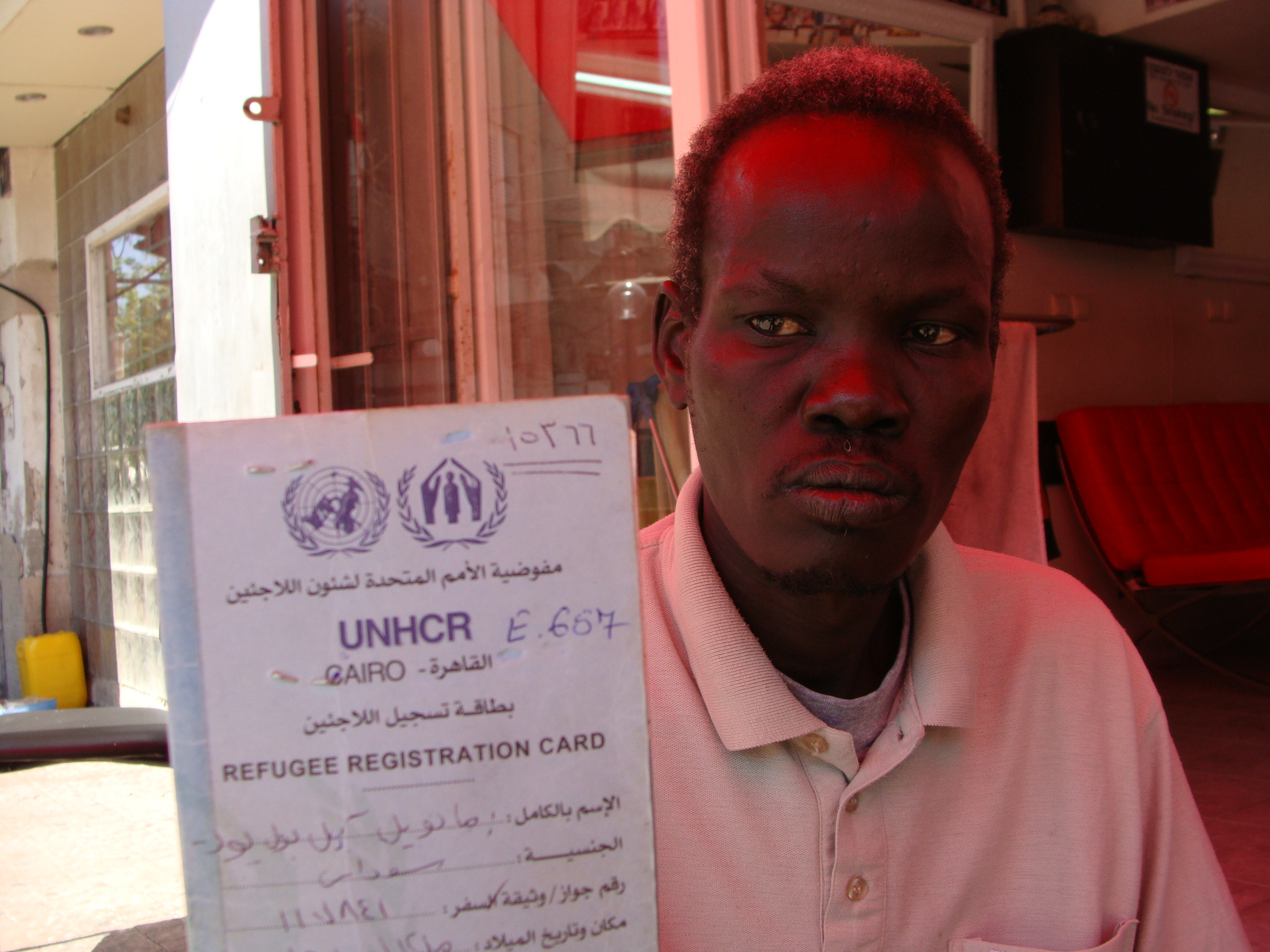Agence France-Presse (AFP), June 13, 2012
Abraham Alu, a 35-year-old asylum seeker from South Sudan, hasn’t left his apartment in south Tel Aviv for five days. He has run out of money and food. But he is too scared of the immigration police to venture further than the courtyard.
Alu used to sell plastic work boots on a busy pedestrian thoroughfare in south Tel Aviv but he stopped last Thursday, immediately after an Israeli court effectively ruled to deport South Sudanese nationals.
Although the state promised to give the South Sudanese community a week to leave of their own free will, police started rounding them up just three days after the ruling.
Rights groups put the number of those affected at around 700 men, women and children, while Israeli officials claim there are more than twice that number.
In the past, Alu shared his small, one-room apartment with 12 other men. But, as many South Sudanese have stopped working for fear of being caught by the police, the number has swelled to 20.
There aren’t enough mats to go around. Skinny men rest on the dirty, threadbare carpets.
“Sometimes we’re sitting two days without food. We drink water and tea. That’s enough,” says Alu, his hands shaking as he takes a sip from a paper cup. Some refugees have taken to eating pigeons.
Alu was seven when he saw his parents killed by militiamen. He fled his village alone, eventually making his way to Cairo. There, Alu joined a 2005 sit-in outside of the United Nations High Commissioner for Refugees, protesting conditions refugees faced in Egypt.
When police raided the camp, 27 Africans were killed, including a toddler.
Alu ran again, arriving in Israel in early 2006. Now he has “lost all hope.”
A friend of his who returned to South Sudan after the country gained independence last summer was killed in the fighting that has broken out on the border.
“North Sudan is bombing civilian areas,” Alu says. “We (South Sudanese) are just looking for help.”
Alu does not know if anyone from his family is alive or where they are. He says he has nothing to return to in South Sudan and fears for his life.
William Chol, a 32-year-old father of four, fled South Sudan alone when he was 13. In north Sudan, he worked as a domestic helper. His employer did not let him out of the house and did not pay him. Chol says it was like “slavery.”
Chol escaped to Egypt in 2002. In 2009, he came to Israel with his wife and their young children.
Although the immigration police are out in full force, Chol stands on the now-quiet walkway where Alu used to sell shoes. Chol says that he won’t hide.
“Hide for what? I’m not a criminal.”
He points out that, like other South Sudanese, he has a visa. This visa, however, does not include permission to work.
In the wake of anti-African violence in south Tel Aviv and the imminent threat of deportation, Chol’s children are no longer attending school. He says they faced harassment from Israeli kids, some of whom, he claims, threw stones at them.
He says it feels like the community is “having a war with Israel.”
He’s tired of fighting and is outside, he says, because he wants to be arrested.
Like Alu, Emanuel Kel Bol Yok, 52, stopped working when he heard about the court’s decision. His family is running out of food, he says. He couldn’t make rent this month. “In two days, three days, we will be in the street.”
While he is scared of being deported, Bol Yok went to the police on Tuesday to beg them to allow his children to finish the school year. He has five children, ranging in age from two to 18; three attend public schools.
Sigal Rozen of the Hotline for Migrant Workers says the sweeping round-ups had further frightened a community which was already struggling with the rising tide of public hostility towards them.
“There is a lot of fear in the community. Two sisters — one in the first grade, the other in sixth grade — were arrested yesterday.” Along with their parents, the girls were taken to prison.
In schools in south Tel Aviv, many of the children are asylum seekers from Eritrea and north Sudan, she explains.
“It’s very difficult to explain to these kids that they are safe (while South Sudanese children) are being arrested.”
The deportation is impacting other African migrant workers, as well.
Justina Cobbina is a 41-year-old migrant worker from Ghana. Her husband, who is also from Ghana, was picked up by immigration police on Sunday; she hasn’t heard from him since.
Empress, their nine-year-old daughter, was born in Israel. In fluent Hebrew, she admits she is scared: “This morning, I cried.”
A number of asylum seekers’ families have also been split up as police arrest the South Sudanese partner but allow their spouses from elsewhere to stay.
Interior Minister Eli Yishai has expressed his intention to deport all Africans, however, warning that the 60,000 who reside in Israel will bring an “end to the Zionist dream.”
